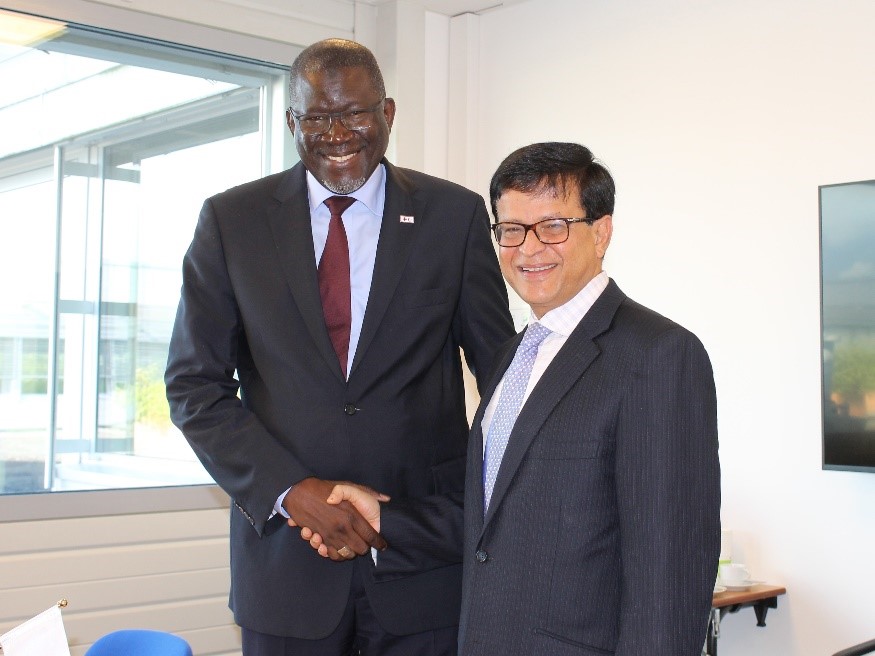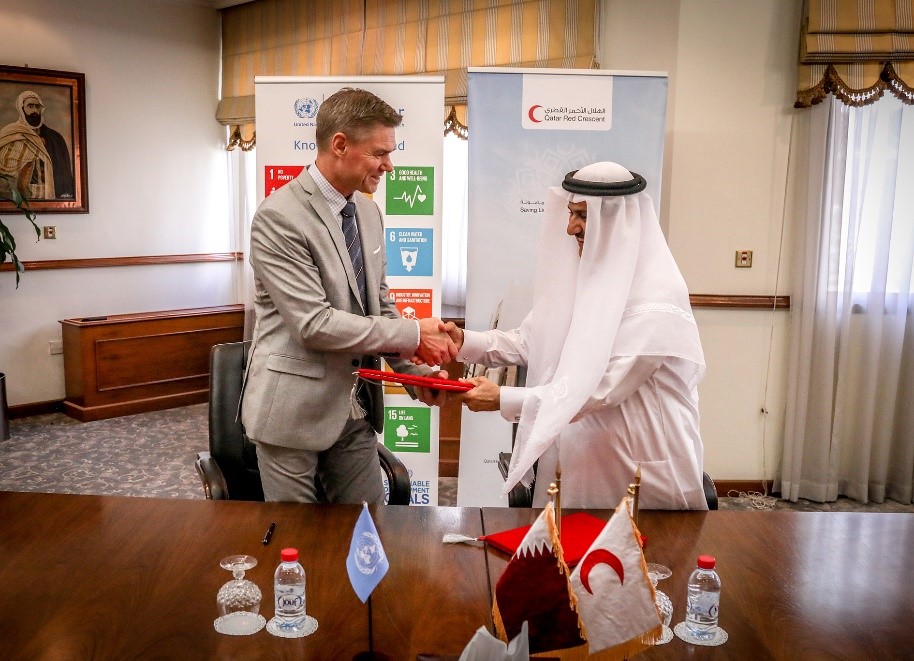UNOSAT Reinforces its Collaboration with the Red Crescent and Red Cross Movement
29 September 2017, Geneva, Switzerland – After several years working together to mainstream the use of geospatial analysis in the humanitarian sector and supporting each other´s respective mapping services, UNITAR-UNOSAT and the International Red Crescent and Red Cross Movement are taking a leap forward by further strengthening their cooperation.
 On 15 September 2017, UNITAR entered into an agreement with the International Federation of the Red Cross and Red Crescent Societies (IFRC) to reduce the effects of disasters worldwide through improved preparedness, response, recovery and risk reduction. To maximize impact, UNITAR will support the Federation in developing thematic training courses and implement a learning strategy with a heavy focus on community resilience. On the technological side, UNOSAT´s Rapid Mapping service will be accessible to IFRC and we will work together to explore and embrace, as needed, the latest innovations in learning and information management.
On 15 September 2017, UNITAR entered into an agreement with the International Federation of the Red Cross and Red Crescent Societies (IFRC) to reduce the effects of disasters worldwide through improved preparedness, response, recovery and risk reduction. To maximize impact, UNITAR will support the Federation in developing thematic training courses and implement a learning strategy with a heavy focus on community resilience. On the technological side, UNOSAT´s Rapid Mapping service will be accessible to IFRC and we will work together to explore and embrace, as needed, the latest innovations in learning and information management.
Following up on this agreement, UNITAR-UNOSAT is now further involved with the Red Crescent and Red Cross Movement at a grassroots level after concluding a Memorandum of Understanding with the Qatar Red Crescent Society on 26 September 2017. The Qatar Red Crescent Society´s (QRCS) foremost mission is to contribute vital humanitarian aid and reduce suffering in the wake of disasters. In recent years QRCS has been active in Gaza and Syria as well as in other areas where humanitarian assistance is needed. Founded in 1978, QRCS became the first philanthropic organization in Qatar to establish a women´s branch in 1982.
Forms of cooperation will include technical trainings in the use of GIS and remote sensing for disaster and crisis management, regional outreach and awareness raising regarding the usefulness of geospatial technologies throughout the disaster management cycle, and the development of analytical mapping products, web-based platforms, ground data collection tools and more to inform national and international disaster and crisis management.
technologies throughout the disaster management cycle, and the development of analytical mapping products, web-based platforms, ground data collection tools and more to inform national and international disaster and crisis management.
Einar Bjorgo, manager of UNOSAT programme, had this to say about the new partnership: “By introducing these types of technologies to the International Red Cross and Red Crescent Movement, we believe that we can reach an even wider audience than we are currently doing with our UN colleagues. It is important to get as much impact as possible. Working closely with QRCS and other national societies is part of this strategy”.
QRCS´s Secretary-General, Mr. Ali bin Hassan echoed this sentiment and laid out QRCS´s objectives: “QRCS´s strategy is to integrate the latest technology in its humanitarian operations, which facilitates effective disaster preparedness, assessment, and management”.
Photo 1: IFRC Secretary General, Elhadj As Sy, and UNITAR Executive Director Nikhil Seth conclude a long term agreement in Geneva, Switzerland
Photo 2: QRCS Secretary-General Ali bin Hassan and UNOSAT Manager Einar Bjorgo shake hands during the signing ceremony in Doha, Qatar

